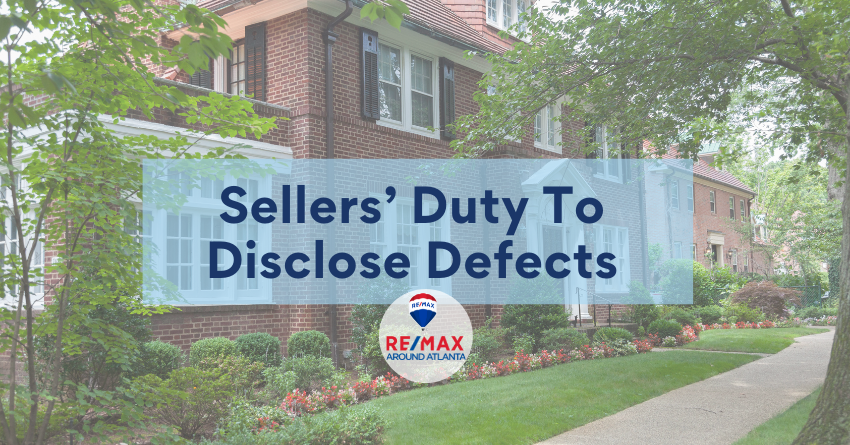|
Duty To Disclose A seller of residential property owes a duty to disclose to prospective buyers hidden or latent defects in a property of which the seller knows of or should have known and that the buyer could not discover upon a reasonably diligent inspection of the property. The GAR Seller Property Disclosure (SPD) forms are the created for this purpose. Disclosing latent defects (and arguable latent defects) on these forms protects the Seller against claims of fraud and breach of contract. Even if a property is sold “as is,” known latent defects must be disclosed by the seller. In the GAR form Property Sold with Right to Request Repairs, the buyer ‘s right to request repairs is limited to defects that were not disclosed in an SPD (so long as items are working). Further, a lawsuit for fraudulent concealment will not be successful if the Seller disclosed the defect on the SPD. The more the Seller discloses on the SPD, the less chance there is of an accusation of fraud. It is recommended that the long form be used whenever possible. Buyer Should Inspect
The seller’s answers on an SPD should not substitute for a buyer conducting a careful, independent evaluation of the property. Caveat emptor (buyer beware) is the law in Georgia. Buyers are expected to use reasonable care to identify defects in the Property and satisfy themselves that the property is suitable for Buyer’s needs and purposes. If an evaluation of the property reveals areas of concern that would cause a reasonable buyer to investigate further, a buyer may not have legal recourse if the buyer fails to investigate further. Whether A Particular Defect Could Be Discovered By The Exercise Of Reasonable Due Diligence By The Buyer. This is highly specific to the situation at hand. Even if the fact not revealed would have been material to the buyer’s decision to purchase, the exercise of ordinary due diligence by the buyer is required. Buyers have the burden of exercising the diligence of an ordinarily prudent buyer in the same situation, which includes using “ordinary means of information”—such as checking county records for boundary lines, obtaining pest inspections if there is evidence of an infestation, and so forth—to discover information about the property. It also means looking under area rugs, moving boxes and furniture and looking in the attic and basement. If a space can be reasonable accessed, the buyer is charged with inspecting it. Post-Closing Claims for Fraud Failure to disclose a defect is a claim for fraud. A buyer cannot claim the seller committed fraud by non-disclosure if the defect is easily discovered using ordinary means of information. The question to ask is “Could the Buyer have discovered the defect by the exercise of due diligence?” If a non-disclosed condition is discovered post-closing, the matter can often be resolved between the parties. If it cannot be resolved, the matter may require litigation. Does a Seller Need to Disclose the following conditions?
Seller Liability for Failure To Disclose Defects While caveat emptor (buyer beware) is the law in Georgia, a seller’s failure to disclose can take 3 forms:
Disclosure to Be Accurate and Complete as of Binding Agreement Date Before clients enter into a contract, brokers may want to review the Seller’s Property Disclosure Statement Exhibit to make sure that all questions have been answered and inquire whether any information on the Seller’s Property Disclosure Statement Exhibit has changed since it was first completed. Obviously, if it has, the Seller’s Property Disclosure Statement Exhibit should be updated to ensure that the information is accurate and complete as of the binding agreement date. To the extent the seller revises the Seller’s Property Disclosure Statement Exhibit after it is included as part of an offer to purchase, the revisions would constitute a counteroffer to which the buyer would need to agree.
0 Comments
Leave a Reply. |
RMAAReal Estate News, Brokers Blog & More Categories
All
Archives
July 2024
|


 RSS Feed
RSS Feed